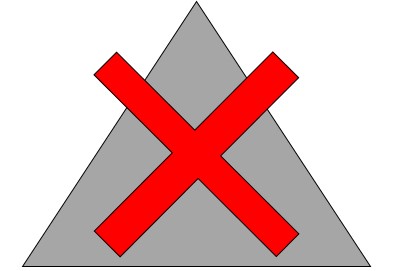Consumer Protection from Unfair Trading Regulations 2008 CPRs

|
Contents |
[edit] Introduction
The Consumer Protection from Unfair Trading Regulations 2008 (known as the CPRs) were introduced to control unfair practices used by traders when dealing with consumers and to create criminal offences for traders that breach them.
[edit] History
The CPRs were adopted in May 2008. They replaced most of the regulations included in the Trade Descriptions Act 1968 (TDA). The CPRs were intended to protect consumers by making businesses take responsibility for their unfair trading practices. Under the CPRs, businesses include trades, crafts, professions and the activities of any government department, local or public authority.
In addition to the CPRs, the Business Protection from Misleading Marketing Regulations 2008 (BPRs) were adopted to address fair practice activities in business-to-business advertising including conditions related to comparative advertisements.
[edit] Scope of coverage
The CPRs are grouped into four general areas, including three actions that would be deemed unfair if they caused consumers to follow a different course of purchasing action. These are:
- Actions and omissions that could be deemed as misleading.
- Practices that would be labelled as aggressive.
- Actions that would be generally considered unfair or contrary to professional responsibilities.
The fourth CPR area covers 31 practices prohibited under any circumstances. These can be grouped into several general categories, including:
- False endorsements or authorisations.
- Inertia sales (sending unsolicited goods to potential customers to make a sale).
- Making unreasonable demands.
- Misleading availability.
- Misleading context or effect.
- Overly aggressive sales.
- Pyramid schemes.
- Prize draws.
Guidance offered through Consumer Protection from Unfair Trading describes all 31 specific prohibited practices in detail.
[edit] Identifying different types of customers
The CPRs recognise that it is possible for different types of consumers to respond to trading practices differently, and it has designated these types as:
- Average consumers. These customers are reasonably well informed, observant and circumspect.
- Targeted consumers. These customers have been selected based on the likelihood of their interest in a specific product or service.
- Vulnerable consumers. These customers may be part of a physical or mental demographic that makes them susceptible to unethical trading practices.
[edit] Related articles on Designing Buildings
- Competition and Markets Authority CMA.
- Consumer.
- Consumer Council for Water CCWater.
- Consumer Rights Act.
- Green Claims Code.
- Greenwashing.
- Guarantees.
[edit] External resources
- Legislation.gov.uk, The Consumer Protection from Unfair Trading Regulations 2008.
- Office of Fair Trading, Consumer Protection from Unfair Trading.
Featured articles and news
RTPI leader to become new CIOB Chief Executive Officer
Dr Victoria Hills MRTPI, FICE to take over after Caroline Gumble’s departure.
Social and affordable housing, a long term plan for delivery
The “Delivering a Decade of Renewal for Social and Affordable Housing” strategy sets out future path.
A change to adoptive architecture
Effects of global weather warming on architectural detailing, material choice and human interaction.
The proposed publicly owned and backed subsidiary of Homes England, to facilitate new homes.
How big is the problem and what can we do to mitigate the effects?
Overheating guidance and tools for building designers
A number of cool guides to help with the heat.
The UK's Modern Industrial Strategy: A 10 year plan
Previous consultation criticism, current key elements and general support with some persisting reservations.
Building Safety Regulator reforms
New roles, new staff and a new fast track service pave the way for a single construction regulator.
Architectural Technologist CPDs and Communications
CIAT CPD… and how you can do it!
Cooling centres and cool spaces
Managing extreme heat in cities by directing the public to places for heat stress relief and water sources.
Winter gardens: A brief history and warm variations
Extending the season with glass in different forms and terms.
Restoring Great Yarmouth's Winter Gardens
Transforming one of the least sustainable constructions imaginable.
Construction Skills Mission Board launch sector drive
Newly formed government and industry collaboration set strategy for recruiting an additional 100,000 construction workers a year.
New Architects Code comes into effect in September 2025
ARB Architects Code of Conduct and Practice available with ongoing consultation regarding guidance.
Welsh Skills Body (Medr) launches ambitious plan
The new skills body brings together funding and regulation of tertiary education and research for the devolved nation.
Paul Gandy FCIOB announced as next CIOB President
Former Tilbury Douglas CEO takes helm.
UK Infrastructure: A 10 Year Strategy. In brief with reactions
With the National Infrastructure and Service Transformation Authority (NISTA).






















